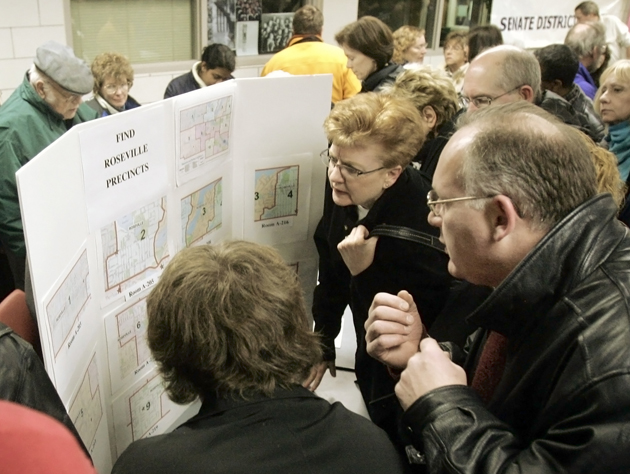Change Iowa's Secret Ballot

University of Iowa professor Stephen Bloom has gotten a lot of well-deserved criticism for an error-ridden piece in em>The Atlantic< that's sets new records for academic elitism, distain, and distate for just about everything about his adopted state. Much as I abhor Bloom's style--it represents just about everything that drove me away from my parents' uber-left views--I think that his point that Iowa's role in the presidential nominating contest is overblown has something to it.
At least on the Republican side, the nature of the Iowa process tends to give far too much power to forces and figures that do no good for the GOP or its cause. A closer look, however, shows that the real problem seems to have nothing to do with the Iowa voters and a lot to do with the way Iowa's GOP runs the elections.
The election results don't lie: even though plausible nominees have always finished on top, fringe figures like Pat Robertson (25 percent to eventual nominee George H.W. Bush's 19 percent in 1988), Pat Buchanan (23 percent to eventual nominee Bob Dole's 26 percent in 1996) and Alan Keyes (a surprisingly strong 14 percent third-place showing in 2000) have done gained credibility and power in Iowa that they simply couldn't have gotten elsewhere. Whether he wins outright or finishes a strong second--one of the two seems inevitable--Ron Paul seems almost certain to join this motley role call. Giving more power to angry, bigoted, unelectable, conspiracy-minded types does any good for the GOP or the conservative movement in general.
That said, Iowa--a middle-American state with very good public education, a strong mix of different interests, and a political culture where neither party is utterly dominant--sure looks like a pretty good place to hold early primaries on the surface. Its elected officials from both parties tend to be sober-minded men (it has never sent a woman to Congress) near the center of their parties.
So what gives? The problem may really lie in the oddball "secret ballot caucus" that the Iowa GOP uses. People who want to make their voices heard in the GOP nominating process have to show up at local caucus meetings meetings, listen to an hour or two of speeches from locals who support candidates and then write the name of the candidate they favor on a blank sheet of paper that others (at least in theory) can't see. Absentee voting isn't allowed.
That process is a dream come true for fringe candidates. Because takes a long time on a school night, people with business, travel, and family commitments--hard-working, family-oriented people who make up the great bulk of the electorate that the GOP says it wants to target--often can't be bothered to show up.
On the other hand, the secret nature of the ballot (most other caucuses, including those of Iowa's Democratic Party, use an open ballot) means that nobody who casts a vote for a fringe candidate has to answer for it in front of their neighbors. The result is that people who don't work, don't have families at home, but are committed to wacky political theories are much more likely to caucus. Furthermore, the lack of true ballot-booth-type privacy in most settings means that peer pressure of whoever screams the loudest may well impact some votes.
The simplest answer to all of this would be for Iowa to switch to an election-like traditional primary where voting takes only a few minutes. If Iowans really can't abide this, however, the GOP should at least consider switching to the less fringe-friendly open ballot caucus system that gets used everywhere else. In any case, the Iowa GOP would do itself, its state, and the Republican Party a favor if it changed the way its members select candidates.

